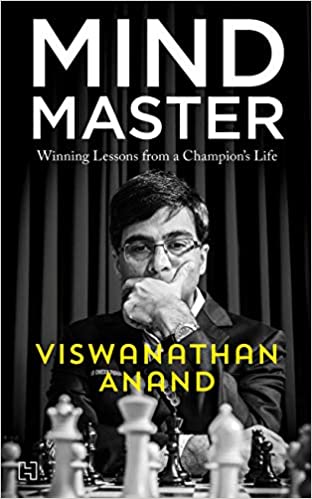Bonn, 2008. Viswanathan Anand and Vladimir Kramnik face each other in the World Chess Championship, a much-anticipated clash between two modern titans of the game. The episode serves as a suspenseful introduction to the autobiography of the five-time World Championship winner, Viswanathan Anand.
Chess receives far less visibility than sports such as cricket, tennis and soccer, which is why almost every such book on chess is unique. In Mind Master, Anand shares the journey from his initial chess-playing days, all the way to the present, covering pivotal moments of his life and career. Each chapter ends with two moments of introspection—the first, a snapshot of a notable game with an insight into what Anand was contemplating at a key moment, and the second, a life-lesson that the reader can benefit from, regardless of any interest in chess. Many of those life-lessons are well worth bookmarking. Sample this one, where he advocates for measured spontaneity: ‘Once in a while, you’ve got to take the counter-intuitive path, but not without owning responsibility for the consequences—and certainly not without preparation’ (p. 18).
Anand reveals that one habit he accepted grudgingly at first was to put down his observations right after a defeat ‘when the pain was raw’ (p. 29). As he grew older, this habit enabled him to funnel his emotions constructively after losses. He even began to look forward to these opportunities to reflect. This is challenging to execute but brilliant, for if a person has something to look forward to even in disappointing moments, personal improvement will always be in motion.

